The decentralized finance (DeFi) revolution has transformed the financial landscape by removing intermediaries and offering users greater control over their assets. However, one critical challenge remains: blockchains operate as closed systems that cannot natively access real-world data. This is where oracles come into play. Oracles act as bridges between blockchains and external data sources, enabling smart contracts to interact with real-world events.
Want to stay ahead of key DeFi trends like oracles and smart contract automation? Join EPIQ Trading Floor today! Use code “BLOG” at checkout for 10% off your membership and gain access to expert trade signals, Member’s only livestreams, and personalized coaching. Start your risk-free 3-day trial now—cancel anytime within 72 hours to avoid charges.
Understanding Oracles in DeFi
Blockchains are designed to be immutable and trustless, which makes them highly secure but also limits their ability to interact with real-world data. Oracles solve this problem by supplying blockchains with external information, such as asset prices, weather conditions, or sports scores. Without oracles, smart contracts would be confined to operating solely within their native blockchain environments, significantly limiting their use cases.
Oracles enable decentralized applications (dApps) to function more effectively by providing them with real-time and verifiable data. This data feeds into smart contracts, allowing them to execute commands based on predefined conditions. For example, a DeFi lending platform might rely on an oracle to determine the real-time price of Bitcoin to adjust collateral ratios for loans.
Why Are Oracles Essential in DeFi?
The DeFi ecosystem relies heavily on accurate, real-time data to function properly. Oracles play a crucial role in multiple areas, including lending platforms, decentralized exchanges, synthetic assets, and insurance protocols.
One of the most important use cases for oracles is in decentralized lending platforms like Aave and Compound. These platforms allow users to borrow crypto assets by providing collateral. The collateralization process depends on real-time asset prices, which are sourced through oracles. If an oracle provides incorrect or delayed price data, users could face liquidation risks or exploit opportunities.
Similarly, decentralized exchanges (DEXs) such as Uniswap and SushiSwap depend on oracles to determine token prices for liquidity pools. Accurate pricing ensures that trades occur at fair market value, preventing arbitrage exploits.
Oracles are also integral to synthetic asset platforms, such as Synthetix, which enable users to trade tokenized versions of stocks, commodities, and fiat currencies. These synthetic assets require constant price feeds from external markets to maintain their value, a task fulfilled by oracles.
Another growing use case is blockchain-based insurance. Decentralized insurance protocols like Nexus Mutual utilize oracles to verify real-world events, such as flight delays or smart contract exploits. Claims are automatically executed through smart contracts when the oracle confirms the event, eliminating the need for manual processing.
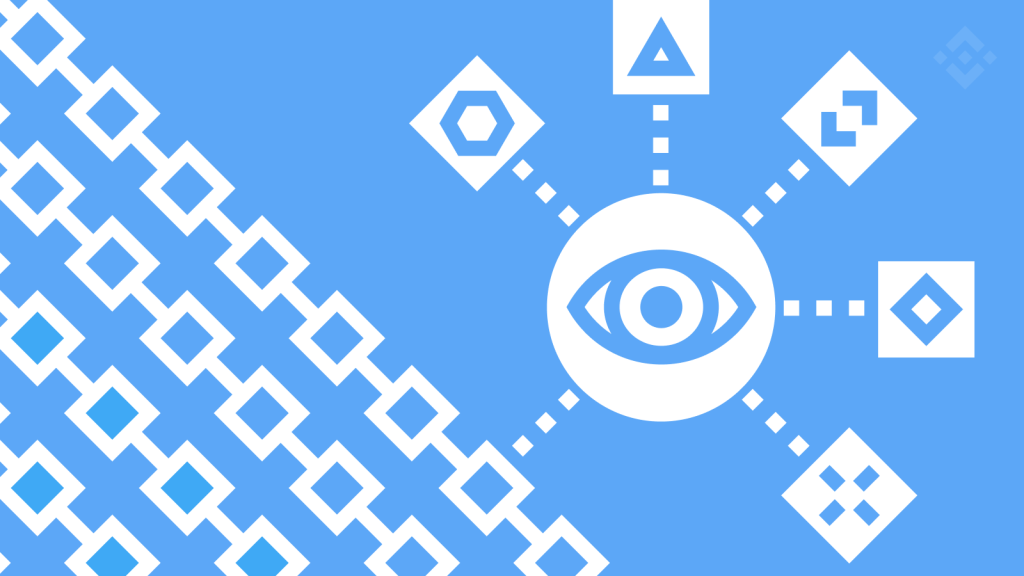
How Oracles Work
Oracles operate by gathering data from multiple sources, verifying its accuracy, and delivering it to a blockchain. This process is typically broken down into three main steps:
- Data Collection: The oracle retrieves data from external sources, such as financial markets, APIs, IoT devices, or traditional databases.
- Verification: Oracles aggregate and validate data from multiple providers to prevent manipulation or inaccuracies.
- On-Chain Delivery: Once verified, the oracle feeds the data into a smart contract, enabling it to execute transactions or trigger actions.
Some of the leading oracle providers in the blockchain space include:
- Chainlink: The most widely adopted decentralized oracle network, used by numerous DeFi protocols to supply secure and reliable data feeds.
- Band Protocol: A cross-chain oracle that allows multiple blockchains to access off-chain data.
- API3: A decentralized API solution that enables first-party data providers to supply information directly to smart contracts.
Each of these oracle networks employs different mechanisms to ensure data integrity, such as decentralization, staking, and cryptographic proofs.
Challenges and Risks of Oracles
While oracles provide critical functionality, they also introduce potential risks to DeFi applications. One of the most significant challenges is the oracle problem, which refers to the reliance on external data sources that are not secured by the blockchain itself. If an oracle is compromised, attackers could manipulate data to exploit smart contracts.
Another major concern is data accuracy and latency. Since oracles source data from various providers, discrepancies between sources can arise. Delayed price updates can lead to incorrect smart contract executions, especially in high-volatility markets.
Additionally, oracle centralization can pose a risk to DeFi protocols. If a single entity controls an oracle, it could manipulate data or become a point of failure. To address this, decentralized oracles aggregate data from multiple sources and use consensus mechanisms to validate inputs.
Security vulnerabilities are another issue. In past attacks, hackers have exploited weak oracles to manipulate DeFi protocols. For instance, in 2020, a price manipulation attack on a poorly secured oracle resulted in a $100 million loss on a lending platform. To mitigate such risks, DeFi projects are increasingly turning to decentralized oracle solutions with multiple data sources and verification layers.
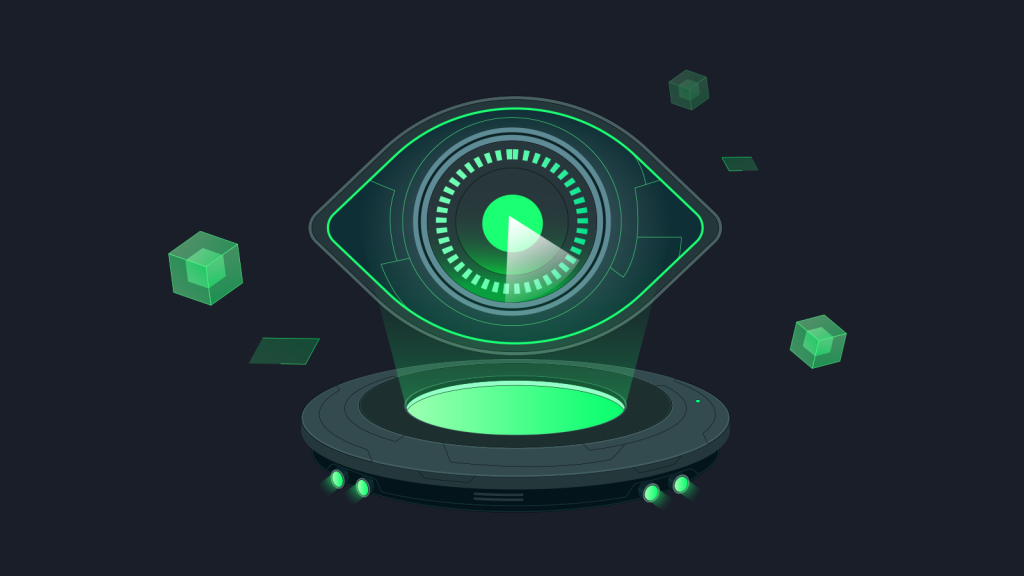
The Future of Oracles in DeFi
The role of oracles is expected to expand as DeFi continues to grow and evolve. One of the key trends shaping the future of oracles is cross-chain interoperability. As blockchain ecosystems become more interconnected, oracles will play a crucial role in enabling seamless data flow between different networks.
Another emerging trend is real-world asset tokenization. As more traditional assets, such as stocks and real estate, become tokenized on the blockchain, oracles will be essential in ensuring their prices and data are accurately reflected.
Furthermore, advancements in privacy-focused oracles are underway. Zero-knowledge proofs (ZKPs) and other privacy-enhancing technologies are being integrated into oracles to protect sensitive data while maintaining transparency.
Regulatory developments will also impact oracles, especially as governments seek to impose greater oversight on DeFi protocols. Oracle providers may need to adapt by incorporating compliance measures while preserving decentralization.
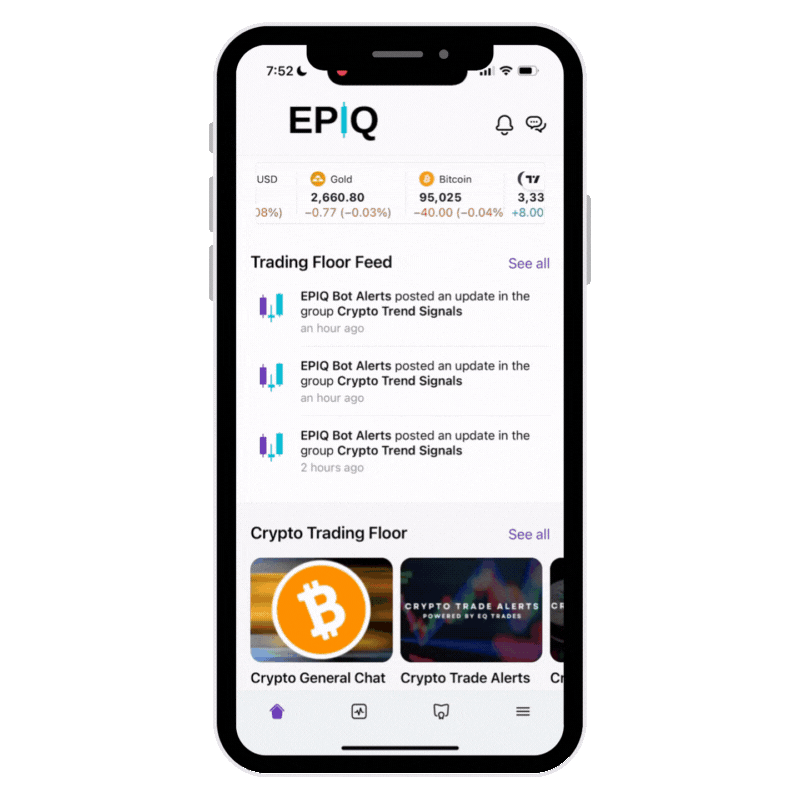
Maximizing Your Crypto Trading Success with EPIQ Trading Floor
Understanding the role of oracles in DeFi is crucial for traders and investors looking to navigate the evolving crypto landscape. At EPIQ Trading Floor, we provide:
- Real-Time Trade Signals: Gain actionable insights to optimize your trading strategies.
- Member’s Only Livestreams: Learn directly from expert traders in live sessions.
- Exclusive Mobile App Access: Manage your portfolio and access tools on the go.
- One-on-One Coaching: Get personalized trading guidance from professionals.
Join today and use code “BLOG” at checkout for 10% off your membership. Enjoy a risk-free 3-day trial and cancel anytime within the trial period without being charged.
Conclusion
Oracles are an essential component of the DeFi ecosystem, bridging the gap between blockchains and real-world data. Without reliable oracles, many DeFi applications would be unable to function effectively, limiting the growth of decentralized finance. However, as the technology evolves, the need for secure, decentralized, and efficient oracles will only increase.
For traders and investors, staying informed about oracle advancements can provide a strategic advantage in the crypto market. With new innovations in cross-chain interoperability, tokenized assets, and privacy solutions, oracles are set to play an even more significant role in shaping the future of blockchain technology.
Ready to level up your crypto trading knowledge and make informed investment decisions? Join EPIQ Trading Floor today and gain access to expert insights and trading resources.
Disclaimer: The information provided in this article is for educational purposes only and does not constitute financial advice. Cryptocurrency investments involve significant risks, and you should consult a financial advisor before making any investment decisions.



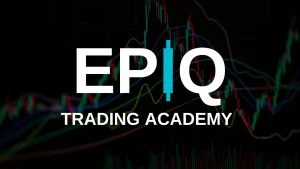

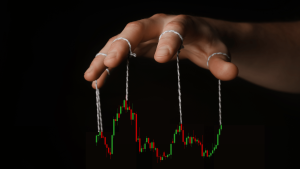
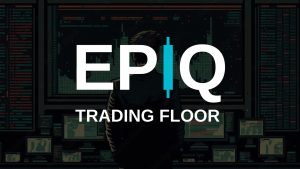

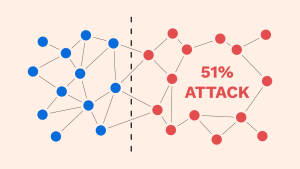

Responses